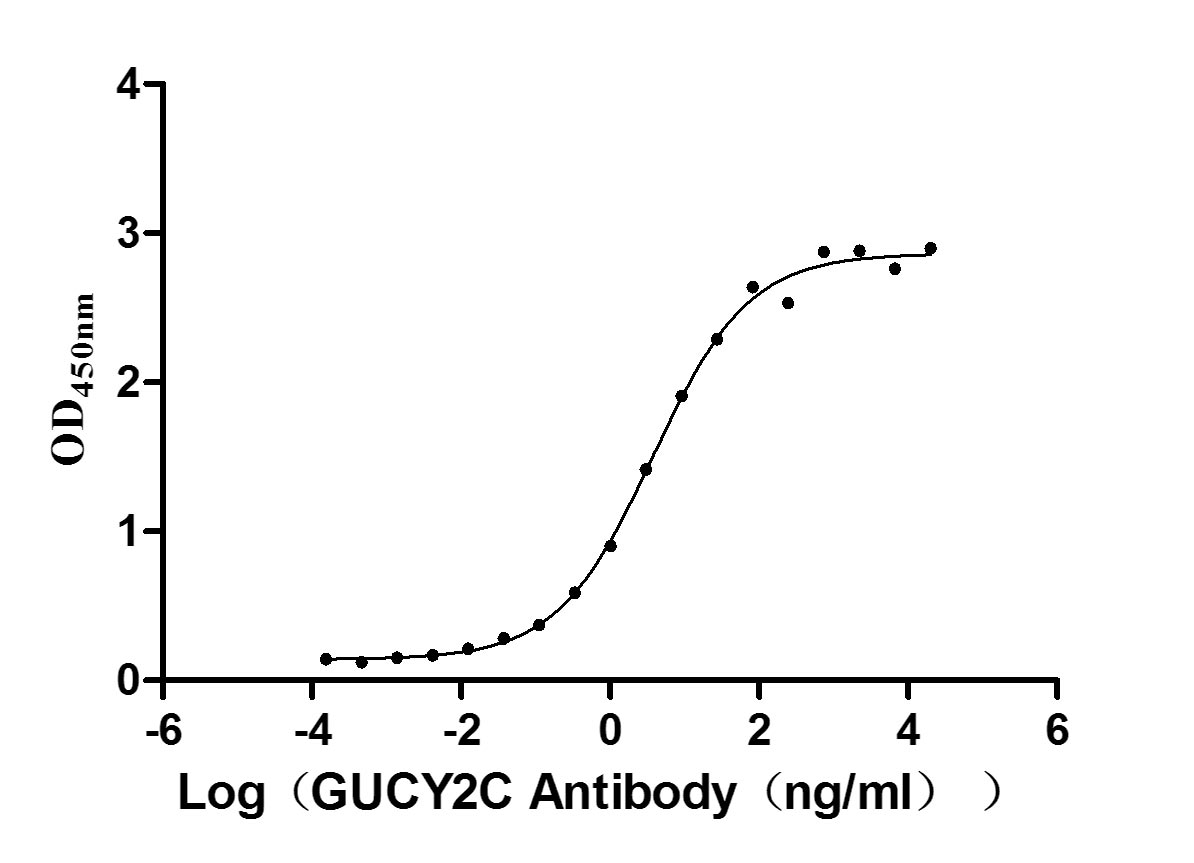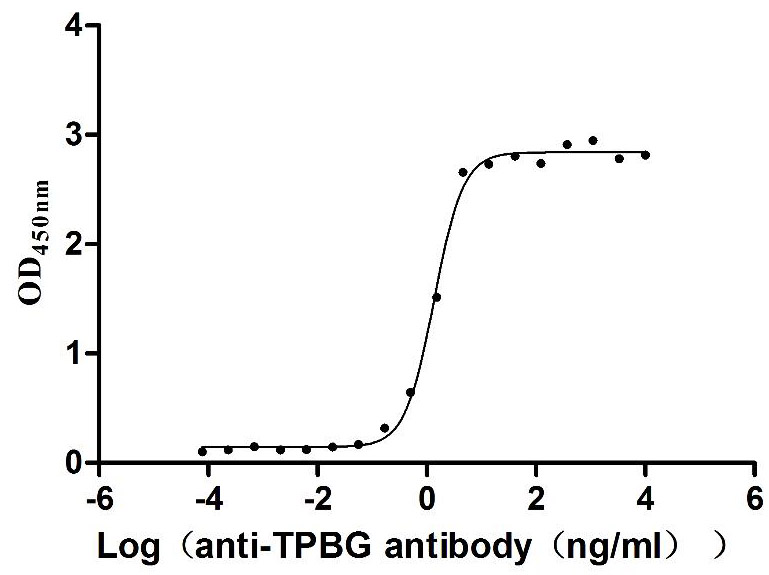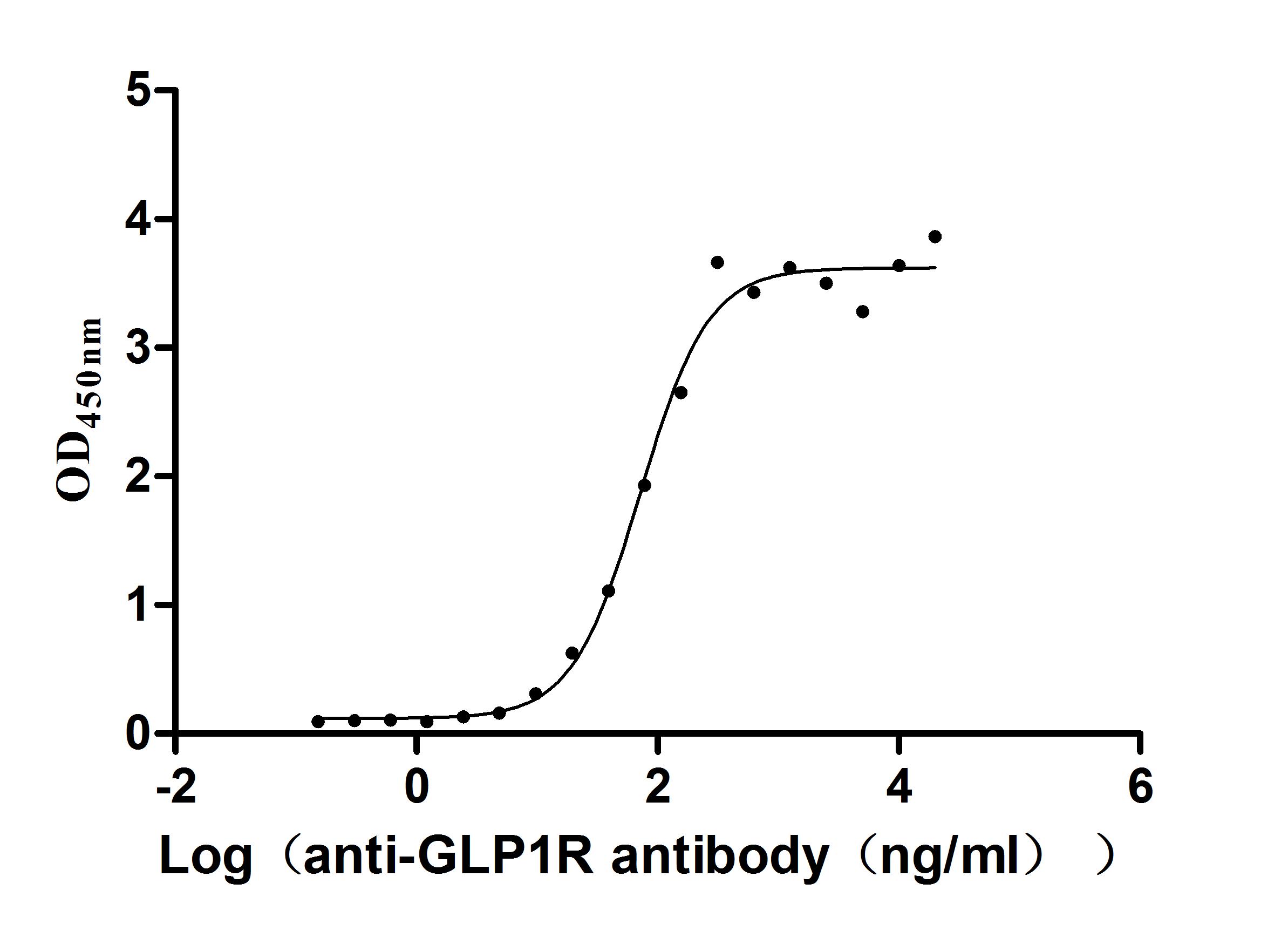Recombinant Mouse Potassium channel subfamily K member 9 (Kcnk9)
-
中文名称:小鼠Kcnk9重组蛋白
-
货号:CSB-CF663392MO
-
规格:
-
来源:in vitro E.coli expression system
-
其他:
产品详情
-
基因名:Kcnk9
-
Uniprot No.:
-
别名:Kcnk9; Task3; Potassium channel subfamily K member 9; Acid-sensitive potassium channel protein TASK-3; TWIK-related acid-sensitive K(+ channel 3
-
种属:Mus musculus (Mouse)
-
蛋白长度:full length protein
-
表达区域:1-402
-
氨基酸序列MKRQNVRTLSLIACTFTYLLVGAAVFDALESDHEMREEEKLKAEEVRLRGKYNISSDDYQ QLELVILQSEPHRAGVQWKFAGSFYFAITVITTIGYGHAAPGTDAGKAFCMFYAVLGIPL TLVMFQSLGERMNTFVRYLLKRIKKCCGMRNTEVSMENMVTVGFFSCMGTLCLGAAAFSQ CEDWSFFHAYYYCFITLTTIGFGDFVALQAKGALQRKPFYVAFSFMYILVGLTVIGAFLN LVVLRFLTMNTDEELLEGEVAEILAGNPRRVSVRAPQRRKRHHAMYFLRKYGRTLCYLCF PGTNWGKDDDDDDDDDVVDNVVVTAPISAPAPAPAPAPAPAAVAAGATIRSVRATVHTVS CRVEEIPPDVLRNTYFRSVFGAIPPGMHTCGDHRLHLRRKSI
Note: The complete sequence including tag sequence, target protein sequence and linker sequence could be provided upon request. -
蛋白标签:N-terminal 10xHis-tagged
-
产品提供形式:Liquid or Lyophilized powder
Note: We will preferentially ship the format that we have in stock, however, if you have any special requirement for the format, please remark your requirement when placing the order, we will prepare according to your demand. -
缓冲液:Lyophilized from Tris/PBS-based buffer, 6% Trehalose, pH 8.0
-
储存条件:Store at -20°C/-80°C upon receipt, aliquoting is necessary for mutiple use. Avoid repeated freeze-thaw cycles.
-
保质期:The shelf life is related to many factors, storage state, buffer ingredients, storage temperature and the stability of the protein itself.
Generally, the shelf life of liquid form is 6 months at -20°C/-80°C. The shelf life of lyophilized form is 12 months at -20°C/-80°C. -
货期:Basically, we can dispatch the products out in 1-3 working days after receiving your orders. Delivery time may differ from different purchasing way or location, please kindly consult your local distributors for specific delivery time.Note: All of our proteins are default shipped with normal blue ice packs, if you request to ship with dry ice, please communicate with us in advance and extra fees will be charged.
-
注意事项:Repeated freezing and thawing is not recommended. Store working aliquots at 4°C for up to one week.
-
Datasheet & COA:Please contact us to get it.
相关产品
靶点详情
-
功能:pH-dependent, voltage-insensitive, background potassium channel protein.
-
基因功能参考文献:
- impairment of the leak K(+) channel (Kcnk9) decreased sleep duration. Based on these results, we hypothesize that leak K(+) channels regulate sleep duration in mammals. PMID: 30224462
- Acute hypercapnia (5% CO2) stimulated ventilation in TASK-1/3(-/-) and wild-type mice to a similar extent; however, at higher CO2 concentrations the stimulation of ventilation was more pronounced in TASK-1/3(-/-) mice. At hyperoxia (100% O2), TASK-1(-/-), TASK-3(-/-) and wild-type mice showed the physiological small decrease of ventilation. TASK-1/3(-/-) mice exhibited an abnormal increase of ventilation under hyperoxia. PMID: 28673876
- results demonstrate that neurotensin (NT) transiently increased the neuronal excitability of dentate gyrus granule cells (GCs) by inhibiting TASK-3 channels; NT-mediated increases in neuronal excitability facilitate long-term potentiation at the perforant path-GC synapses PMID: 25405940
- KCNK9 channels are not involved in hearing. PMID: 26549439
- THe results of this study suggested that dysfunction of KCNK9 causes a migration defect in the cortex via an activity-dependent mechanism. PMID: 23236211
- Oxygen and mitochondrial inhibitors modulate both monomeric and heteromeric TASK-1 and TASK-3 channels in mouse carotid body type-1 cells. PMID: 24042502
- Data indicate that in 1-day-old Task3-/- mice, renal renin concentration was lower than in wild-type mice. PMID: 23698720
- DPP6 co-expression with TASK-3 results in the formation of a protein complex that enhances resting membrane potassium conductance. PMID: 23593319
- An extracellular ion pathway plays a central role in the cooperative gating of a K(2P) K+ channel by extracellular pH PMID: 23319597
- Task3 plays an important role in the adaptation of aldosterone secretion to dietary salt intake. PMID: 22878402
- This study demonistrated that kcnk9 gene expression in mouse dorsal raphe nucleus PMID: 22534482
- TASK3 channel genes may contribute to the development of low renin essential hypertension and idiopathic hyperaldosteronism in mice. PMID: 22493079
- TASK channels are not required for the stimulation of aldosterone production by protons but their inhibition by physiological acidosis may contribute to full expression of the steroidogenic response. PMID: 21111026
- Kcnk9 gene is imprinted, with preferential expression from the maternal allele in mouse brain. PMID: 17704508
- inhibition by glucose in neurons is mediated by ion channels not previously implicated in central or peripheral glucose sensing: tandem-pore K(+) (K(2P)) channels PMID: 16731510
- TASK3 and HCN2 channels stabilize the membrane potential by a mutual functional interactions. PMID: 16760342
- TASK-like conductances are more prevalent in inhibitory interneurons than previously supposed. PMID: 16837582
- Our results support a novel role for TASK genes in enhancing neuronal excitability and promoting high-frequency firing, but suggest that TASK1/3 subunits are not essential for orexin cell responses to glucose and pH. PMID: 19508695
- TASK-3 knockout mice exhibit a slower progression from their waking to sleeping states and their sleep episodes as well as their REM theta oscillations are more fragmented. PMID: 19805135
显示更多
收起更多
-
亚细胞定位:Cell membrane; Multi-pass membrane protein.
-
蛋白家族:Two pore domain potassium channel (TC 1.A.1.8) family
-
数据库链接:
KEGG: mmu:223604
STRING: 10090.ENSMUSP00000038729
UniGene: Mm.386856
Most popular with customers
-
Recombinant Human Heat-stable enterotoxin receptor (GUCY2C), partial (Active)
Express system: Mammalian cell
Species: Homo sapiens (Human)
-
Recombinant Human Zymogen granule protein 16 homolog B (ZG16B) (Active)
Express system: Mammalian cell
Species: Homo sapiens (Human)
-
Recombinant Human Trophoblast glycoprotein (TPBG), partial (Active)
Express system: Mammalian cell
Species: Homo sapiens (Human)
-
Recombinant Human Glucagon-like peptide 1 receptor (GLP1R), partial (Active)
Express system: Mammalian cell
Species: Homo sapiens (Human)
















